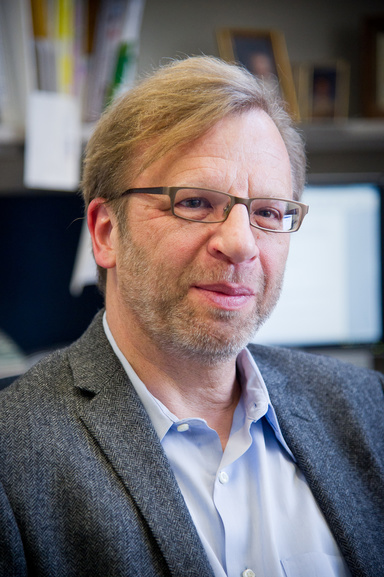
David Bills, associate dean of academic affairs and graduate programs in the University of Iowa College of Education, was a Fulbright scholar in Berlin in 2003. Ten years later, the institution he researched with then invited him back to continue his work.
Bills recently returned to Wissenschaftszentrum Berlin fur Sozialforschung, or Social Science Research Center-Berlin, to collaborate with scholars in its Education, Work, and Life Chances unit. This is the same unit he worked with in 2003 while on his Fulbright Scholarship, which is the United States’ premier educational exchange program.
Ten years ago, he collaborated on a project examining trends in the hiring and training practices of German and U.S. employers. A professor in the Schools, Culture, and Society Program, Bills is interested in social inequality and how education plays a role in social and economic stratification. Bills has been working for several years on a book about these issues in Brazil.
Heike Solga, director of the research unit Bills visited, says she invited Bills because he is a top scholar in his field and could also work with post-doctoral fellows to teach them what he knows about publishing in U.S. scientific journals as an accomplished academic author as well as former editor of Sociology of Education, one of the leading journals in the field.
While in Berlin, Bills collaborated with several scholars and worked on multiple research projects.
His major purpose was to interact with post-doc and graduate student scholars in the College for Interdisciplinary Educational Research, which is a collective project of several European universities aimed at encouraging researchers from many disciplines to focus their efforts on educational problems and research.
Bills gave lectures to the group and met with many of the scholars in small groups or one on one.
“These graduate students and post-docs were so eager and smart, it was fun to work with them,” Bills says.
In addition to his interactions with that group, he worked on a paper about the relationship between education and economic development, primarily in the United States. He worked on a chapter for the American Sociological Association’s forthcoming Handbook of Economic Development.
He collaborated with Felix Weiss of the University of Manheim on a comparative study for the European Research Council’s EduLife project, which in part compares school to work transition experiences in many nations, including Denmark, Estonia, France, Hungary, Italy, Russia, Spain, Sweden, Switzerland, and the U.S., and pays particular attention to gender differences in each nation.
“We were looking at why women are largely outperforming men in education, but not yet in the workforce,” Bills says.